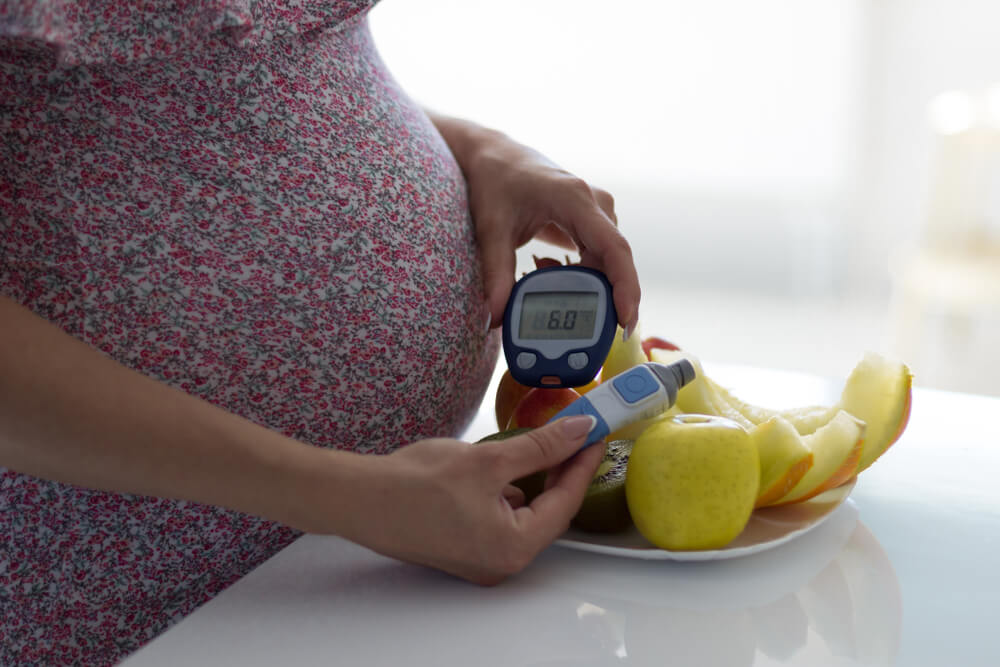If you are looking for the best gestational diabetes diet on the internet, you have landed on the right article. Below, you will find out the most useful expert-backed-up advice for expecting mothers with this diabetes type. You will uncover the most effective gestational diabetes meal plan, what foods you should incorporate into your diet, which to avoid, and much more. You will also learn about gestational diabetes, its common symptoms, causes, diagnosis and treatment, and general outlook.
But before jumping straight into the foods to add and foods to avoid with gestational diabetes, remember to seek out the help of a licensed medical professional. If you are in the area, we recommend checking out Maternity care in Palm Beach, FL.
If all of this sounds good, let’s begin with the gestational diabetes diet and the must-know facts.
What is Gestational Diabetes?
Gestational diabetes refers to a type of diabetes that doctors diagnose for the first time in gestation or pregnancy. Similar to other diabetes types, gestational diabetes will affect how the cells utilize glucose or sugar. Pregnant women with gestational diabetes experience high blood sugar that can wreak havoc on the unborn child’s health.
Even though all pregnancy complications can cause concern, by following a proper gestational diabetes diet and exercising regularly, you can get your health back on track. By controlling your blood sugar, you will ensure maximum health for yourself and your child.
The blood sugar levels of women who experience gestational diabetes during pregnancy typically return to normal after delivering the baby. However, women with gestational diabetes are also at higher risk of having type 2 diabetes. We recommend getting tested for changes in blood sugar levels. If you are lost and confused, worry not. We’re here to help you. Whenever in doubt, request an appointment at Comprehensive OBGYN for further instructions.

The Common Causes of Gestational Diabetes
Although researchers are unsure about the exact causes of gestational diabetes, most believe that excess weight before getting pregnant is a factor. Typically, different hormones work to balance blood sugar levels. However, during pregnancy, a woman’s hormone levels change, making it more challenging for the body to process blood sugar adequately. Because of this, blood sugar levels rise.
Some of the most common risk factors of gestational diabetes include:
- Having prediabetes
- Being obese or overweight
- Being physically inactive
- Having polycystic ovary syndrome or PCOS
- Having someone in the family with diabetes
- Having previously given birth to a baby of more than 4.1 kilograms of 9 pounds
- Having a certain ethnicity or race, such as Asian American or Black
Gestational Diabetes Symptoms
Usually, pregnant women with this condition do not experience any significant signs and symptoms. However, some common gestational diabetes symptoms may include frequent urination and increased thirst. If you feel ill or you experience any unusual symptoms, make sure to contact your healthcare professional for expert guidance. Women with gestational diabetes may require more frequent checkups than healthy pregnant women. Always speak to your healthcare professional about any gestational diabetes symptoms you suspect you may have.
How to Treat Gestational Diabetes
Prevention is the best treatment method for gestational diabetes. Luckily, there are many things that you can do to ensure maximum health during pregnancy. Here are some of the things you can do to keep this condition at bay:
- Learn which foods to avoid with gestational diabetes: Some food items may be more harmful than others. Try to avoid these foods in your diet and consume more nutrient-dense ingredients instead.
- Consult a nutritionist: Talk to an expert and start following a customized meal plan.
- Start exercising regularly: Staying active before and during pregnancy is crucial for preventing gestational diabetes. You can swim laps, take brisk walks daily, ride a bike, or do anything you enjoy. Talk to a doctor about how much exercise is safe for you.
- Become pregnant at a healthy weight
- Don’t gain more weight than your doctor recommends: Gaining a certain amount of weight is expected and normal. However, pregnant women who gain too much weight too quickly may be at higher risk of getting gestational diabetes. Consult your doctor about the recommended amount of weight gain for you.
The Best Gestational Diabetes Diet
Having gestational diabetes during pregnancy can be daunting, but with the right approach, you can ensure a healthy and complication-free pregnancy. Here is the best gestational diabetes meal plan, based on the recommendations of the most professional experts in the medical field.
Remember, what we put into our bodies matters. Learning which foods to incorporate and which foods to avoid with gestational diabetes is key. Keep on scrolling to find out the approved foods and the ones you should stay away from.
- Lean proteins: Proteins are essential for the proper growth of the baby, as well as feeling full for longer. Some of the best lean protein sources include eggs, chicken, turkey, low-fat dairy, and fish. According to experts, pregnant women must consume proteins at breakfast. By following a structured gestational diabetes meal plan that is high in protein, you will make sure that hunger levels during the day are stable. Moreover, proteins may help pregnant women with morning sickness.
- Healthy fats: According to sources, healthy fats are good for optimal heart health and keeping you feeling full. Some of the best sources of healthy fats include nuts, avocados, seeds, olive oil, and nut butter (such as cashew, almond, and peanut).
- Non-starchy vegetables: Every gestational diabetes meal plan should include an abundance of fresh vegetables. Try to eat a lot of vegetables to get essential minerals, vitamins, and your daily dose of fiber. Some of the best veggies to incorporate into your gestational diabetes meal plan include cucumbers, green beans, broccoli, salad greens, and peppers.
- Complex carbohydrates: If you are looking for delicious gestational diabetes snacks, choose carbohydrate sources that are whole-grain, such as those made from oatmeal, brown rice, and grains such as quinoa. These foods are high in fiber and rich in vitamins and minerals. Other good gestational diabetes snacks include berries such as raspberries and blackberries.

Foods to Avoid with Gestational Diabetes
Now that you are aware of the foods that you should focus on when fighting gestational diabetes, it is also essential to learn which ingredients to avoid. Here are the foods to avoid with gestational diabetes:
- Simple carbohydrates: Simple and processed carbohydrates such as breakfast cereals are typically high in sugar and low in fiber. These snacks may taste amazing, but they will not keep you feeling full. Instead, they will quickly spike your blood sugar and make you crave more. Try avoiding simple carbohydrates, and instead, choose gestational diabetes snacks that are high in fiber and vitamins, such as apples or other fruits.
- Sugary beverages: Fizzy drinks and sugary beverages may contain a lot of additives and sugar.
What are the best gestational diabetes snacks?
Some of the best snacks for gestational diabetes include:
- Eggs
- Avocado
- Plain, non-fat yogurt
- Cucumber with hummus
- Carrots with nut or seed butter
- Cheese sticks
Overall, opt for a protein source combined with a fat source (such as nut butter), and some complex carbohydrates rich in vitamins and minerals.
Where can I seek help?
Request an appointment at Comprehensive OBGYN and receive professional guidance quickly and effectively. Choose the best experts in the field and ensure maximum health. Give us a call today.


